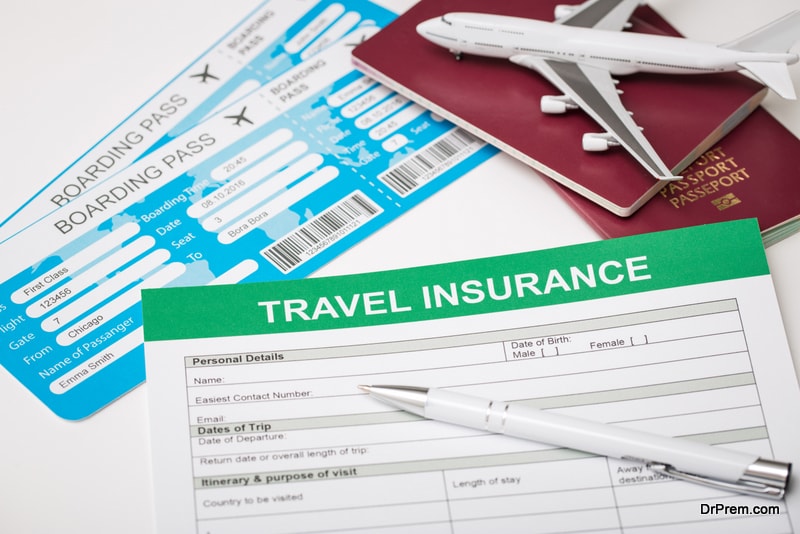The Rise Of Medical Tourism: A Comprehensive Guide

Are you tired of waiting months for a medical procedure that could be done tomorrow? Do you want to save money on healthcare without compromising quality? If so, you may want to consider medical tourism.
Medical tourism is the practice of traveling to another country to receive medical treatment at a lower cost or with shorter wait times. In recent years, medical tourism has become increasingly popular as more people seek affordable and timely healthcare options.
With the rise of medical tourism, there are now more options than ever for medical procedures abroad. From cosmetic surgeries to dental work, fertility treatments to major surgeries, you can find a provider who offers the treatment you need at a fraction of the cost you would pay in your home country.
However, before embarking on a medical trip, it’s important to understand the benefits and risks of medical tourism, choose the right destination and provider, and prepare for your trip accordingly. In this comprehensive guide, we will explore the world of medical tourism, from the types of procedures available to legal and ethical considerations.
Key Takeaways
- Medical tourism is a popular option for those seeking affordable and timely healthcare options.
- Procedures available include cosmetic surgeries, dental work, fertility treatments, major surgeries, organ transplants, and cancer treatments.
- It is important to thoroughly research facilities and providers, as well as the country’s healthcare system and regulations, to ensure safety and quality of care.
- Popular destinations for medical tourism include Thailand, Mexico, Brazil, Costa Rica, Hungary, India, and Singapore.
What is Medical Tourism?
If you’re looking for affordable healthcare options, medical tourism might just be the answer you’ve been searching for.
Medical tourism is the practice of traveling to another country to receive medical treatment at a lower cost than what would be available in your home country. This can include anything from routine procedures like dental work and cosmetic surgery to more complex procedures like organ transplants and cancer treatments.
The rise of medical tourism can be attributed to a number of factors, including the increasing cost of healthcare in developed countries, the availability of high-quality medical facilities in developing countries, and the ease of international travel.
Many people are turning to medical tourism as a way to save money on healthcare costs without sacrificing quality of care. However, it’s important to do your research and choose a reputable medical facility to ensure that you receive the best possible treatment.
Types of Medical Procedures Available
There’s a wide variety of medical procedures available for patients seeking treatment abroad. From cosmetic surgeries to life-saving treatments, medical tourism offers a range of options for those willing to travel.
Here are three types of medical procedures commonly sought after by medical tourists:
- Cosmetic Surgery – This is one of the most popular types of medical procedures sought after by medical tourists. Procedures like liposuction, breast augmentation, tummy tucks, and facelifts are all available at a considerably lower cost in countries like Thailand, Mexico, and Brazil.
- Dental Procedures – Dental treatments like implants, veneers, and crowns are not only cheaper but also of high quality in countries like Costa Rica, Mexico, and Hungary.
- Cardiac Surgeries – Heart surgeries like bypass surgeries, angioplasties, and valve replacements are highly expensive in developed countries like the US and UK. But patients can save up to 80% of their costs by opting for these procedures in countries like India, Thailand, and Singapore.
With significant cost savings, reduced waiting times, and world-class medical facilities, medical tourism has become an attractive option for those seeking quality medical care at affordable prices.
Benefits and Risks of Medical Tourism
When considering medical tourism, it’s important to weigh the benefits and risks involved.
On the one hand, medical tourism can be an affordable way to access high-quality medical care. Many countries that cater to medical tourists offer procedures at a fraction of the cost of those in the United States, for example. This can be especially beneficial for those without health insurance or whose insurance does not cover certain procedures.
On the other hand, there are also risks associated with medical tourism. Traveling to another country for medical care means that you may not have access to the same level of quality control and regulation as you would at home. Additionally, there may be language barriers or cultural differences that could impact your care.
It’s important to thoroughly research the facilities and providers you are considering, as well as the country’s healthcare system and regulations, before making a decision.
Choosing the Right Destination and Provider
Selecting the perfect destination and provider for your medical needs is crucial to ensure a safe and successful experience, so it’s important to do your research beforehand.
Here are three things you should consider when choosing the right destination and provider for your medical tourism:
- Accreditation: Make sure the hospital or clinic you choose is accredited by recognized organizations such as the Joint Commission International (JCI) or the International Organization for Standardization (ISO). This will guarantee that they meet international standards for safety and quality.
- Reputation: Check reviews and feedback from previous patients to get an idea of the provider’s reputation. Look for testimonials on their website, social media pages, and independent review sites. A good provider will have a positive track record and will be transparent about their success rates.
- Cost: While cost should not be the only deciding factor, it’s important to have a clear understanding of the expenses involved in your medical tourism. Compare the costs of different providers and destinations, taking into account not only the procedure itself but also travel, accommodations, and other related expenses. Make sure to ask for a detailed breakdown of the costs and any extra fees that may apply.
Preparing for Your Medical Trip
To make sure you’re fully prepared for your upcoming medical trip, it’s important to take some practical steps ahead of time. Firstly, you should start by researching the specific medical procedure you’ll be undergoing and understanding the potential risks and benefits. This will not only give you a better idea of what to expect during your trip but also help you ask the right questions to your healthcare provider.
Secondly, you should take care of all necessary travel arrangements, including flights, accommodations, and transportation. Make sure to inform your healthcare provider and the hospital of your travel itinerary, so they can make the necessary arrangements for your admission and discharge. Additionally, it’s important to bring all relevant medical records and prescriptions with you and inform your home physician of your trip. By taking these steps, you can ensure a smooth and stress-free medical trip.
| TO-DO LIST | CHECKLIST | |||
|---|---|---|---|---|
| Research the medical procedure | ☠| |||
| Understand the risks and benefits | ☠| |||
| Arrange travel accommodations | ☠| |||
| Inform healthcare provider and hospital | ☠| |||
| Bring relevant medical records and prescriptions | ☠| Pack appropriate clothing and personal items | ☠|
Budgeting and Financing Your Medical Travel
If you’re planning a medical trip, it’s essential to consider budgeting and financing options to ensure you can afford the necessary expenses. Medical treatments abroad can be costly, and it’s important to plan accordingly.
Here are some tips to help you budget and finance your medical travel:
- Research your options: Before booking anything, research the cost of medical treatments in your home country and compare them to the cost of treatments in your destination country. This will give you a good idea of how much you can expect to pay and help you determine if medical tourism is a cost-effective option for you.
- Check your insurance: Check with your health insurance provider to see if they cover medical treatments abroad. If not, consider purchasing travel insurance specifically for medical purposes.
- Look for financing options: Some medical tourism providers offer financing options to help you pay for your treatments. Look into these options and compare interest rates and repayment terms to find the best option for you.
- Factor in additional expenses: In addition to the cost of medical treatments, you’ll also need to consider the cost of travel, accommodations, and other expenses. Make sure to factor these expenses into your budget to avoid any surprises.
By budgeting and financing your medical travel properly, you can ensure that you get the care you need without breaking the bank.
Legal and Ethical Considerations
Now that you’ve got a better understanding of how to budget and finance your medical travel, it’s important to consider the legal and ethical implications of seeking medical treatment abroad.
While medical tourism can offer cost-effective and timely treatment options, it’s crucial to ensure that the medical facility and staff have the necessary qualifications and certifications to provide safe and effective care.
One important consideration is the legal jurisdiction of the country where you plan to receive medical treatment. Different countries may have different regulations and standards for medical facilities and practitioners, and it’s important to research and understand these differences before making a decision.
Additionally, ethical concerns such as informed consent, patient privacy, and the use of unapproved or experimental treatments should also be taken into account.
By doing your research and asking the right questions, you can make an informed decision about whether medical tourism is the right choice for you and your healthcare needs.
Post-Treatment Care and Follow-Up
After receiving medical treatment abroad, it’s important to keep in touch with your healthcare provider and follow any post-treatment care instructions to ensure a smooth recovery. Depending on the nature of your treatment, you may need to return to the country where you received treatment for follow-up appointments. Alternatively, your healthcare provider may be able to provide guidance remotely, either via phone or video consultation.
It’s important to note that follow-up care is an essential part of the recovery process and should not be neglected. In addition to following post-treatment care instructions, it’s also important to take care of yourself after returning home. This may involve making lifestyle changes, such as adopting a healthier diet or incorporating exercise into your daily routine.
You should also be aware of any potential complications that may arise and seek medical attention if necessary. By taking care of yourself and following the guidance of your healthcare provider, you can ensure a successful recovery and enjoy the benefits of medical tourism for years to come.
Future Trends in Medical Tourism
You’ll be excited to know that the future of medical tourism looks promising with advancements in technology and increased availability of affordable healthcare options in various destinations worldwide. In the coming years, medical tourism is expected to expand to new destinations, and offer more specialized treatments and services.
Here’s a quick look at some of the future trends in medical tourism:
| Trend | Explanation |
|---|---|
| Wellness tourism | A focus on healthy living, nutrition, and fitness as part of an overall healthcare package. |
| Telemedicine | Remote consultations and follow-up care with doctors and specialists via video conferencing and other digital communication tools. |
| Personalized medicine | Tailored treatments and therapies based on a patient’s unique genetic makeup and medical history. |
| Regenerative medicine | Cutting-edge techniques that use stem cells and other advanced therapies to repair and regenerate damaged tissues and organs. |
With these exciting trends in store, medical tourism is set to become an even more attractive option for those seeking affordable, high-quality healthcare abroad.
Frequently Asked Questions
Are there any age restrictions for medical tourists?
You should check with the specific medical facility you plan to visit, as age restrictions may vary. Some procedures may be limited to adults only, while others may have specific age requirements.
Can I use my insurance to cover medical tourism expenses?
You may not be able to use your insurance to cover medical tourism expenses, as most insurance plans do not cover treatments received outside of your home country. It is important to check with your insurance provider before making any decisions.
What happens if there are complications during or after my medical procedure?
If complications arise during or after your medical procedure, you may need additional medical treatment. It’s important to have a plan in place before going abroad, including a trusted doctor and travel insurance that covers medical emergencies.
Are there any cultural or language barriers to consider when choosing a medical tourism destination?
Consider cultural and language differences when selecting a medical tourism destination. You may encounter communication barriers and unfamiliar customs. Do your research and choose a destination that aligns with your needs and preferences.
How do I ensure the quality and accreditation of the medical facility and healthcare providers?
To ensure quality and accreditation of medical facilities and providers, research and reviews are key. Check for certifications and accreditations from trusted organizations and ask for references from previous patients.
Conclusion
Congratulations! You’ve now gained a comprehensive understanding of medical tourism and its various aspects. You’ve learned about the different types of medical procedures available, the benefits and risks of medical tourism, and how to choose the right destination and provider.
You also understand the importance of preparing for your medical trip, budgeting and financing your medical travel, legal and ethical considerations, and post-treatment care and follow-up.
As you embark on your medical tourism journey, it’s important to consider future trends in the industry. With advances in technology and increased globalization, medical tourism is expected to continue to grow and evolve.
You may also consider sharing your experience with others and helping to further promote the benefits of medical tourism. Remember to always prioritize your health and safety, and enjoy your medical travel adventure!









